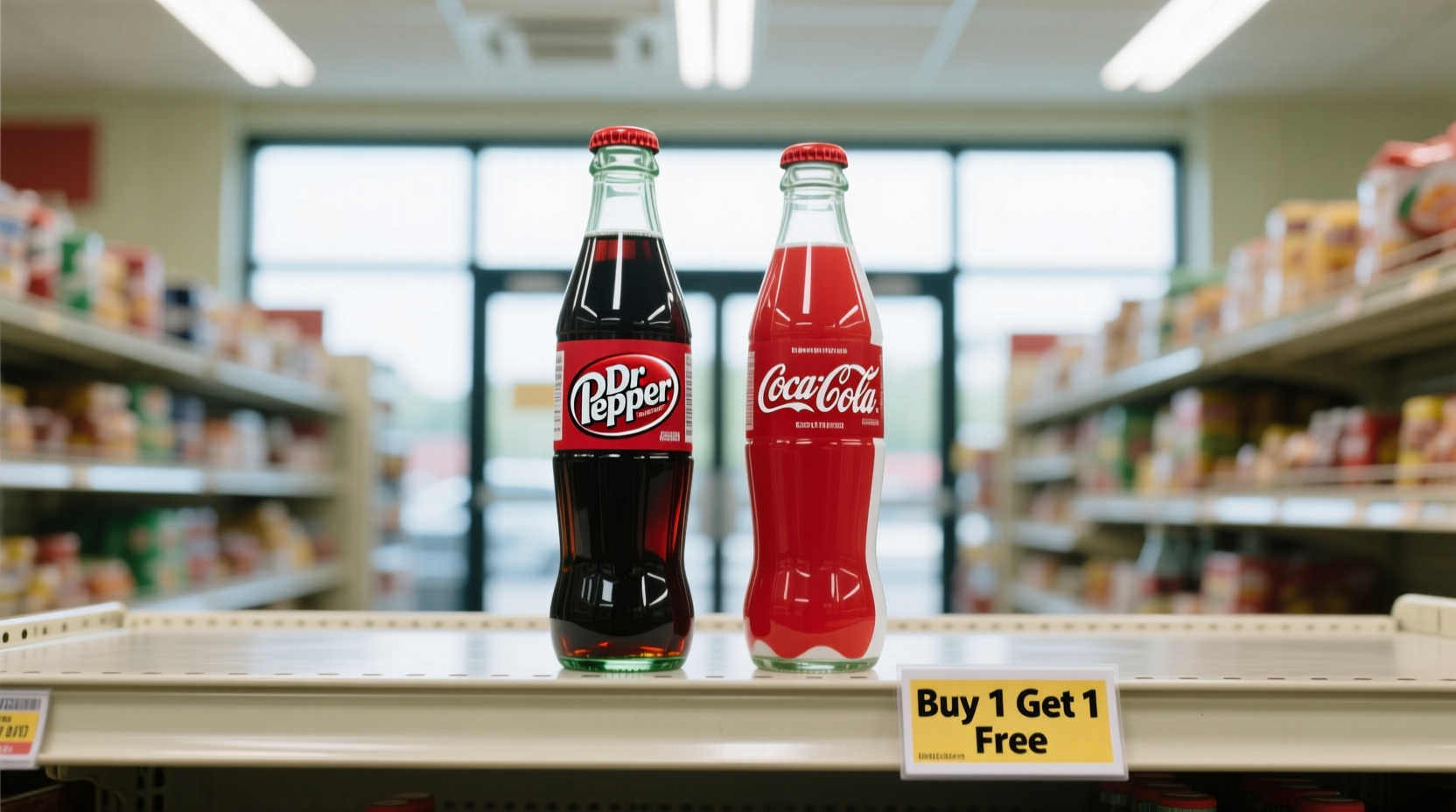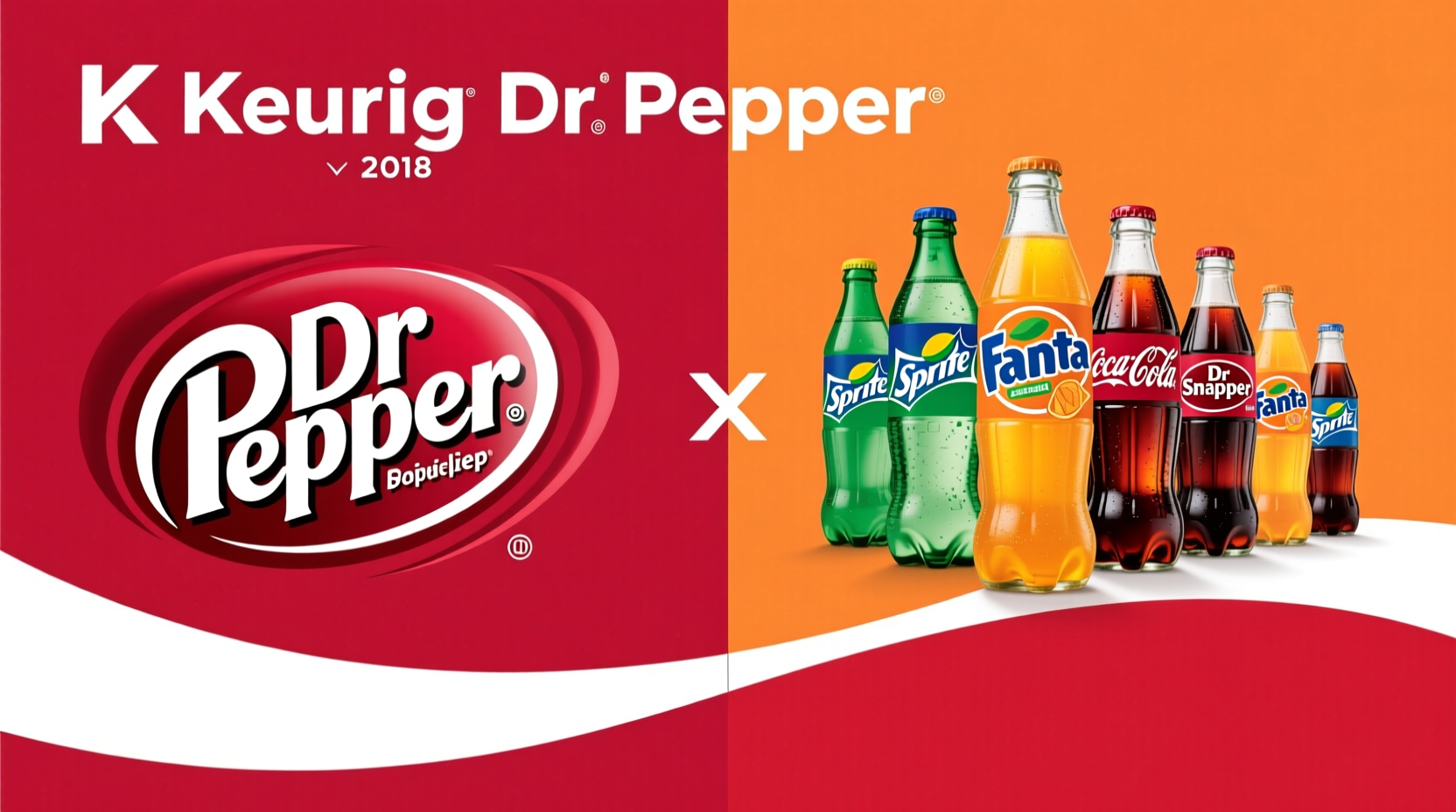Quick answer: No, Coca-Cola does not own Dr Pepper. Dr Pepper is owned by Keurig Dr Pepper (KDP), an independent beverage company formed in 2018 through the merger of Keurig Green Mountain and Dr Pepper Snapple Group. Coca-Cola and Dr Pepper are separate entities competing in the soft drink market.
Many consumers wonder about the relationship between major beverage brands, especially when they see Coca-Cola products alongside Dr Pepper at stores. This confusion is understandable given the complex landscape of the soft drink industry. Let's clarify the ownership structure and provide context about why this question arises so frequently.
Understanding Dr Pepper's Current Ownership
Dr Pepper has maintained its independence from both Coca-Cola and PepsiCo for decades. The brand is currently owned by Keurig Dr Pepper (KDP), which operates as the third-largest beverage company in North America. KDP was formed in 2018 when Keurig Green Mountain merged with Dr Pepper Snapple Group.
Unlike Coca-Cola, which owns and distributes its entire portfolio of beverages directly, Dr Pepper operates under a different model. While KDP owns the Dr Pepper brand, the distribution system in the United States follows a unique structure where independent bottlers handle distribution in specific territories.
Dr Pepper Ownership Timeline: Key Milestones
| Year | Ownership Event | Significance |
|---|---|---|
| 1885 | Dr Pepper created in Waco, Texas | Original formula developed by pharmacist Charles Alderton |
| 1923 | Formation of Dr Pepper Company | First national bottling franchise established |
| 1986 | Purchased by Forstmann Little & Co. | Private equity firm acquires brand after public trading |
| 1995 | Merged with Seven-Up Company | Created Dr Pepper/Seven-Up Inc., establishing stronger market position |
| 2008 | Cadbury Schweppes splits beverage business | Dr Pepper Snapple Group becomes independent public company |
| 2018 | Merged with Keurig Green Mountain | Formation of Keurig Dr Pepper (KDP), current owner |
Why People Think Coca-Cola Owns Dr Pepper
The confusion about Dr Pepper's ownership stems from several factors that create a perception of connection where none exists:
- Distribution similarities: Both Coca-Cola and Dr Pepper products appear together on store shelves, creating the impression they're from the same company
- Historical bottling relationships: Some former Coca-Cola bottlers also distributed Dr Pepper under separate agreements
- Marketing proximity: During certain periods, Dr Pepper ran co-promotions with Coca-Cola products at restaurants
- Brand portfolio confusion: Coca-Cola owns numerous beverage brands, leading some to assume Dr Pepper is among them
According to Beverage Marketing Corporation's 2023 industry report, this misconception affects approximately 38% of consumers who incorrectly believe Coca-Cola owns Dr Pepper. This represents one of the most persistent myths in the beverage industry.
Comparing Beverage Company Portfolios
To better understand the competitive landscape, here's how the major beverage companies compare in terms of their flagship brands:
| Company | Headquarters | Key Beverage Brands | Market Position (US) |
|---|---|---|---|
| The Coca-Cola Company | Atlanta, Georgia | Coca-Cola, Diet Coke, Sprite, Fanta, Dasani, Minute Maid | 1st largest beverage company |
| PepsiCo | Purchase, New York | Pepsi, Mountain Dew, Gatorade, Tropicana, Aquafina | 2nd largest beverage company |
| Keurig Dr Pepper | Plano, Texas | Dr Pepper, Snapple, 7UP, A&W, Canada Dry, Keurig coffee systems | 3rd largest beverage company |
How Beverage Distribution Actually Works
The soft drink industry operates on a unique franchise system that contributes to ownership confusion. Unlike most consumer goods, soft drinks use a two-tier distribution model:
- Brand ownership: Companies like Coca-Cola, PepsiCo, and KDP own the beverage formulas and trademarks
- Bottling network: Independent or partially-owned bottlers produce, distribute, and market the beverages in specific territories
In some regions, former Coca-Cola bottlers also held distribution rights for Dr Pepper products under separate agreements. This created situations where the same delivery trucks carried both Coca-Cola and Dr Pepper products, further fueling the misconception that they're owned by the same company.

What This Means for Consumers
From a consumer perspective, the ownership structure doesn't significantly impact your ability to purchase either beverage. Both Coca-Cola and Dr Pepper products are widely available through the same retail channels. However, understanding the distinction matters for several reasons:
- Product innovation: Each company develops flavors and products independently (Dr Pepper's distinctive flavors like Cream Soda and Cherry Vanilla aren't influenced by Coca-Cola)
- Marketing strategies: Competitive positioning affects advertising approaches and promotional offers
- Corporate responsibility: Different companies have varying sustainability initiatives and business practices
- Investment decisions: For those interested in the beverage industry's financial aspects
The American Beverage Association confirms that maintaining separate ownership has allowed Dr Pepper to develop its unique product portfolio without being constrained by Coca-Cola's brand strategy. This independence has enabled Dr Pepper to introduce innovative products like Dr Pepper Cherry Vanilla and Dr Pepper Ten that cater to specific consumer preferences.
Clearing Up Common Misconceptions
Several persistent myths continue to circulate about Dr Pepper's relationship with Coca-Cola:
- Myth: Coca-Cola acquired Dr Pepper in the 1980s
Reality: Dr Pepper was purchased by private equity firm Forstmann Little during that period - Myth: Dr Pepper is a Coca-Cola product line
Reality: Dr Pepper has maintained its distinct brand identity since 1885 - Myth: The "10, 2, and 4" slogan refers to Coca-Cola break times
Reality: This slogan relates to optimal drinking times according to Dr Pepper's historical marketing
Understanding these distinctions helps consumers make informed choices about the beverages they purchase and recognize each company's unique contributions to the beverage landscape.











 浙公网安备
33010002000092号
浙公网安备
33010002000092号 浙B2-20120091-4
浙B2-20120091-4